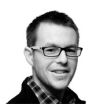Volvo XC90 Recharge T8 hybrid range, MPG, CO2 & charging
The Volvo XC90 Recharge offers useable electric range and therefore strong efficiency. Charging is simple, too
| Fuel economy | CO2 emissions | Electric range | Wallbox charge time |
|---|---|---|---|
| 118-235mpg | 28-34g/km | 42-44 miles | 5hrs (0-100%, 3.7kW) |
A large, premium seven-seat SUV like the Volvo XC90 Recharge is a great plug-in choice, as it gets around some big-car disadvantages when it comes to efficiency, combining petrol and electric power to serve up strong fuel economy and low CO2 emissions.
Charging is easy – just remember you’ll have to do it before most daily journeys to get the best from the car. You'll get about 20 miles of pure-electric running very easily in varied real-world driving, or up to 25 miles in slower stuff, which is competitive, but the BMW X5 plug-in does go usefully further.
Volvo XC90 Recharge T8 hybrid range
With a fully charged battery, the XC90 Recharge T8 will cover up to a claimed 44 miles on electric power alone thanks to a 18.8kWh battery. For reference, rivals like the BMW X5 xDrive45e will cover up to 55 miles when fully charged, while the Mercedes GLE 350 de has an electric driving range of 66 miles.
Around town you'll see the Volvo go further than if you're on the motorway regularly. However, this isn’t exactly realistic. If you're keen to save fuel and money, you need to make sure that you can plug the XC90 in regularly at home, at work, or ideally both.
Charge time
As we’ve already mentioned, the XC90 comes with a seven-metre long three-pin cable as standard, along with a seven-metre Type 2 cable for a faster charger or wallbox. Recharge times depend on the power supply you’re plugged into, but if you use a home wallbox or public charging point capable of providing 3.7kW, you'll recharge the XC90's 18.8kWh battery in around five hours.
Using the Type 2 charging cable, the Volvo is compatible with any Type 2 AC charger up to 22kW (which are very common in towns as well as on motorways), but it's limited to a maximum charge speed of 3.7kW. This means that it'll take three hours to charge regardless of how powerful the feed you plug into is. The XC90 isn't compatible with DC fast chargers.
There’s also a driving mode that uses the petrol engine to charge the battery on the move. It’s useful if you want to top the battery up to use for all-electric driving when you get to a town, but it does place more strain on the engine, so expect your fuel economy to dip in this mode. A battery hold function is also a feature, so you can use the petrol engine to get you down the motorway and save your electric mileage for when you get into the city.

